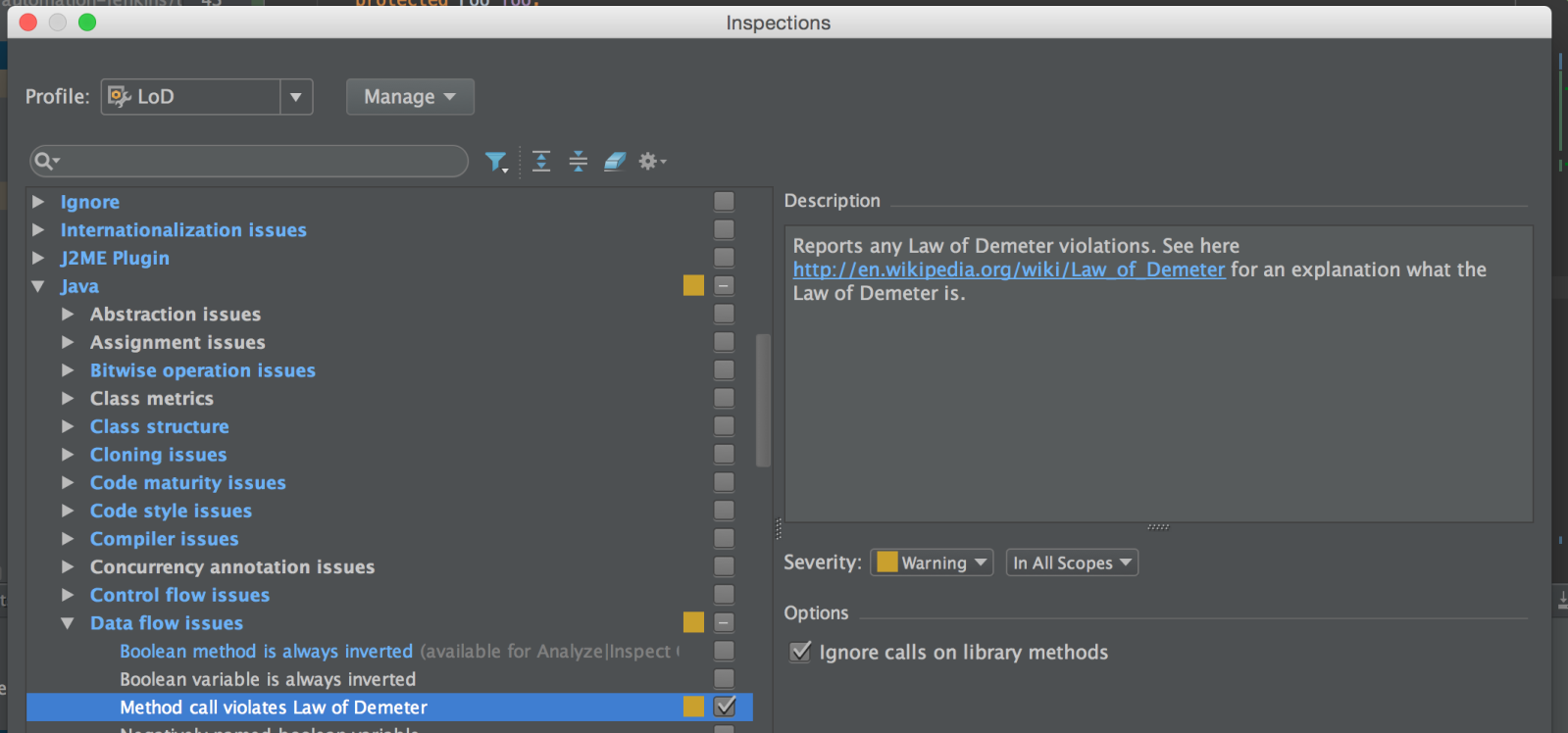This question is a follow-up for this.
Say I have some class Foo.
class Foo {
protected String x = "x";
public String getX() {
return x;
}
}
I have a program that uses Foo and violates LoD (Law of Demeter).
class Bar {
protected Foo foo;
public Bar() {
this.foo = new Foo();
}
public Foo getFoo() {
return foo;
}
}
public static void main(String [] args) {
Bar bar = new Bar();
String x = bar.getFoo().getX();
}
I can refactor this code to use LoD in two steps.
- ⌥⌘m
bar.getFoo().getX()->getFooX(bar)(extract to method, also find and replace occurrences) - F6
getFooX(bar)->bar.getFooX()(move to instance method, also find and replace occurences)
The program that uses Bar no longer violates LoD.
class Bar {
protected Foo foo;
public Bar() {
this.foo = new Foo();
}
public Foo getFoo() {
return foo;
}
public String getFooX() {
return foo.getX();
}
}
public static void main(String [] args) {
Bar bar = new Bar();
String x = bar.getFooX();
}
I am wondering if there is a way to make a custom refactoring method in IntelliJ that would consolidate these two steps into one.
EDIT I got a reply from JetBrains with a link to a pre-existing feature request. Please vote on it if you find this useful!
Hello Michael,
Seems we have similar request in YouTrack: https://youtrack.jetbrains.com/issue/IDEA-122400. Feel free to vote for it and leave comments.
Best regards, Yaroslav Bedrov JetBrains
EDIT
There is at least a way to inspect for Law of Demeter issues.

Here is a gist that contains an inspection profile that will just look for LoD violations. You can import it into IntelliJ.
